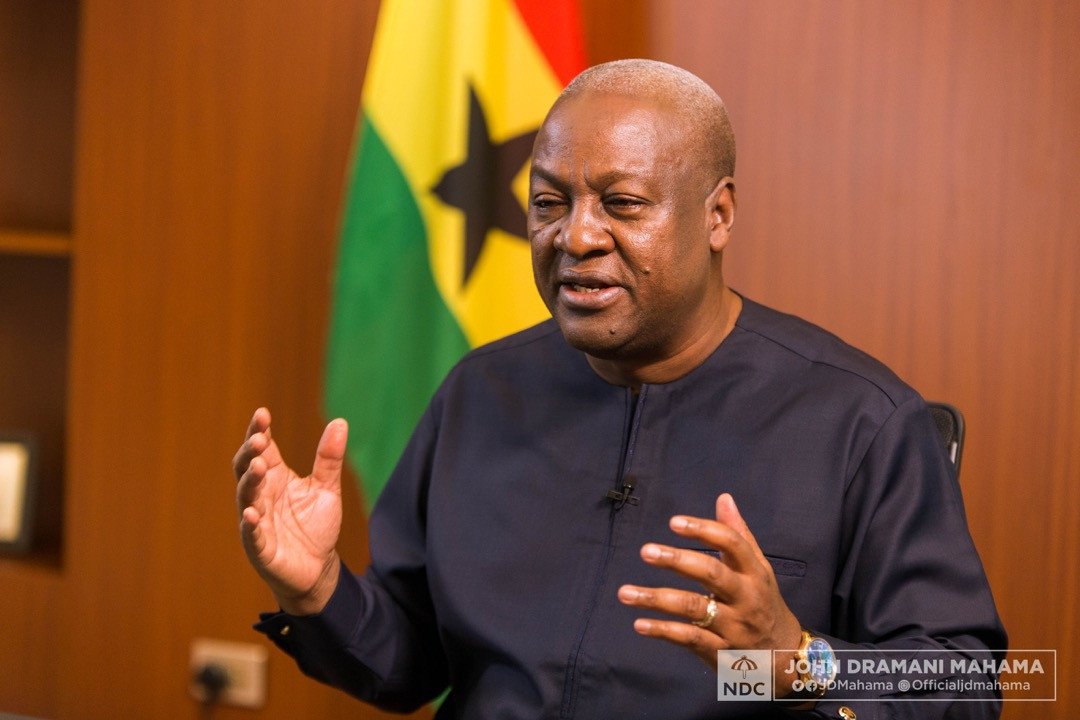Former President John Mahama says the ruling of the Supreme Court ruling that Deputy Speakers can vote while presiding sets a dangerous precedent.
John Mahama in a Facebook post said the ruling "sets a dangerous precedent of judicial interference in Parliamentary procedure for the future."
"A unanimous 7-0? Shocking but not surprising. An unfortunate interpretation for convenience that sets a dangerous precedent of judicial interference in Parliamentary procedure for the future."
Minority Leader Haruna Iddrisu has also described the Supreme Court ruling as judicial support for Elevy.
According to him, they are not surprised by the ruling of the Apex Court but rather disappointed in the court.
He noted that the Supreme Court is determined and willing to support a "struggling President and an ailing economy".
"This ruling of the Supreme Court we are not surprised but disappointed in the Supreme Court of Ghana which is determined and willing to support a struggling President with an ailing economy. This ruling of the Supreme Court can at best be described as Judicial support for ELevy and setting aside time-tested parliamentary practice where is a known practice everywhere in the world that a person presiding shall have no original or casting votes..."
Ruling
The Supreme Court of Ghana in a landmark ruling has said that deputy Speakers of Parliament can vote even when they are presiding as Speaker.
The ruling on Wednesday, March 9, 2022, means that when a matter comes before Parliament that requires voting, a deputy Speaker of Parliament while presiding in the absence of the substantive Speaker of Parliament can also vote on the matter.
The ruling, therefore, affirms the position of the First Deputy Speaker of Parliament, Joseph Osei Owusu, that he did nothing wrong by voting to approve the 2022 budget, although he was presiding as speaker in the stead of Alban Bagbin.
On November 30, last year, Mr. Osei-Owusu who is also the elected Member of Parliament for Bekwai (NPP) in the Ashanti Region, presided over an NPP-sided House to overturn an earlier vote of the House rejecting the Government’s 2022 Budget.
The Bekwai MP, though presiding over the business of the House on the occasion, counted himself for the purposes of taking what turned out to be a controversial vote.
This vote effectively overturned the earlier vote which had been taken by an NDC-sided House, conducted by Speaker Bagbin on November 26.
The other side of the House had on the two occasions boycotted the House over concerns they had voiced out.
Then on Tuesday, February 22, 2022, the First Deputy Speaker of Parliament, Joseph Osei-Owusu in another move, ruled dismissing a motion that had already been admitted by Speaker Bagbin for a bi-partisan Parliamentary Committee of Inquiry into Government’s COVID-19 Expenditure.
A lawyer cum law lecturer, Justice Abdulai subsequent to the November 30, 2021 clash between Speaker Bagbin and his First Deputy, invited the Supreme Court to pronounce as unconstitutional, Deputy Speaker, Joseph Osei Owusu’s action of counting himself for the purposes of quorum.
He argued in the context of articles 102 and 104 of the 1992 Constitution that the Deputy Speaker was not permitted to count himself for the purposes of quorum, since he had neither an original nor a casting vote as Speaker presiding.
Following the judgement, Justice Abdulai said he is not surprised by the judgement and is happy that the intervention of the court will bring clarity of the standing orders of parliament.
He also hinted of plans to get the Supreme Court’s intervention of interpret many other complex situations in Ghana’s laws.
“I’m not surprised by the ruling. The constitution and the people of Ghana win. This puts clarity on the law despite the fact that some of the reliefs that I was seeking was not obtained but there is a far reaching decision that has been taken by the supreme court today to the extent of striking out portions of the standing orders.”





